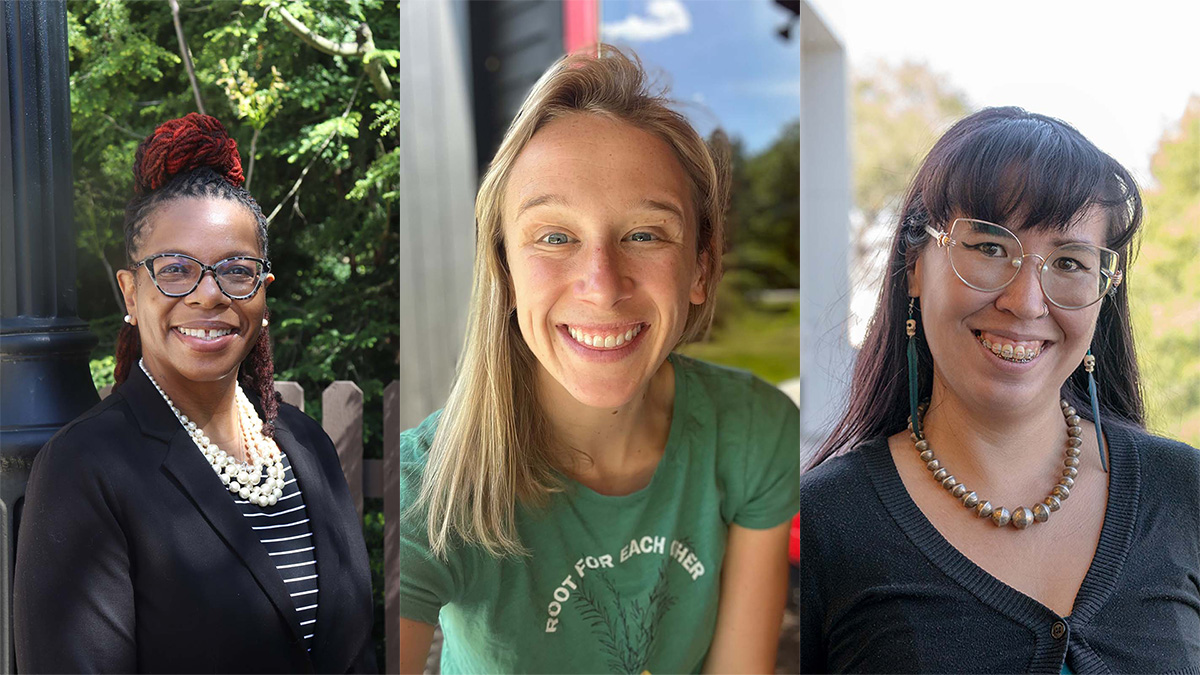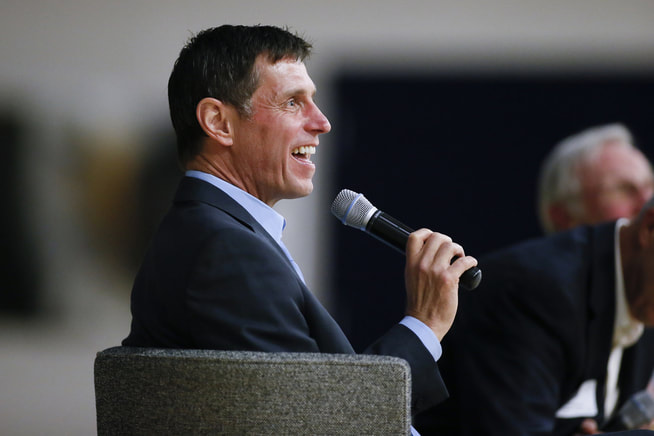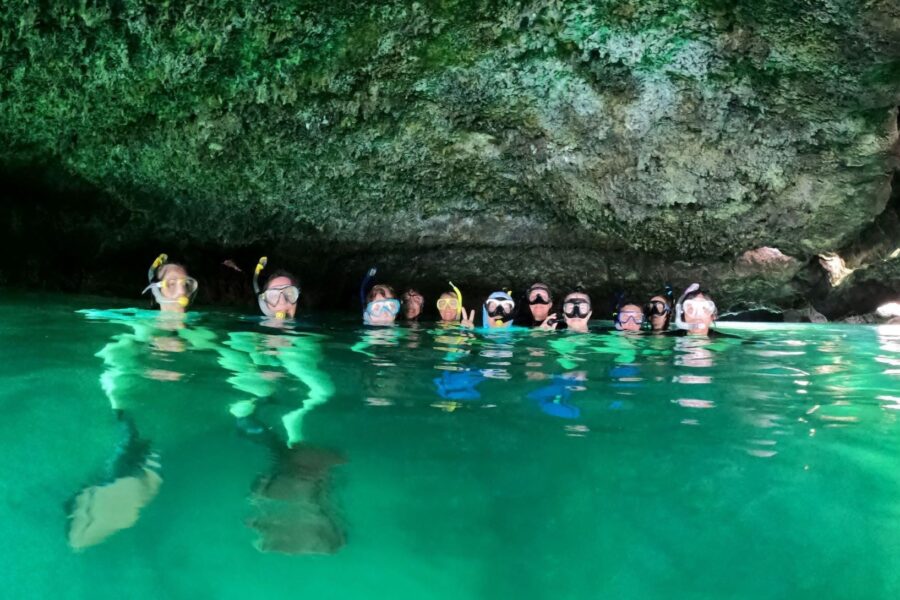Ashley Benson ’20 (GSLC, PhD in Leadership and Change) is Dean of Student Engagement at Luther College. Dani Belvin oversees arts, drama, and music programs as an Associate Dean at Central New Mexico Community College. Ally Muir ’18 (New England, MEd) is the science teacher at the New School in Kennebunk, Maine. In the latest episode of Antioch’s The Seed Field Podcast, host Jasper Nighthawk sat down with these three Antiochians to learn from their experiences bringing a passion for justice into their work as educators.
The following excerpt has been edited and condensed. To listen to the full panel, search for “The Seed Field” in your preferred podcast player or stream it here:
Can you tell us a little bit about your work and what brought you to it?
Ashley: I ended up in higher ed simply by accident—a happy, wonderful accident. I originally went to college to be a high school social studies teacher and then ended up on my mom and dad’s couch. And my mom said, “Here’s this ad, you’re going to apply for this position.” And I ultimately ended up doing work in higher ed as an advisor for TRIO student support services programs, working with low-income first-generation college students. I’ve been in higher ed ever since. I’ve navigated between building my own TRIO program and being involved in the advocacy work associated with first-gen work—my research is on first-gen work. Then also getting into deaning.
Dani: Part of what you were saying, Ashley, really resonated with me. Your comment about accidentally ending up in higher education. My journey was kind of similar in so far as I’ve accidentally ended up in administration. I knew that I wanted to teach theater. That was always my goal. And I’ve kind of taught theater at all levels and all sorts of places, right? Everywhere from kindergarten all the way up to higher ed. About a year ago, this opportunity to step into administration presented itself. I also kind of deal with students mostly in crisis or with issues. And I find that because of my theatrical work, I’m a very even toned person, very able to just hold that space in moments of crisis, which I think is very helpful for the administrator role.
Ally: I had an interest in academics and loved learning outside, but I really didn’t know what I was going to do with that. I found an awesome opportunity at Eagle Rock School and Professional Development Center in Colorado, which is a residential high school for teenagers who are not thriving in the traditional school. Because these students weren’t thriving in a traditional school, we had to approach education differently, and that was what really resonated with me. We did non-traditional classes that were roughly two hours a day and were completely project-based and relevant to the students’ lives—like the chemistry of cooking or physics of mountain biking. After a year back in public school where I was teaching AP Bio, Chem, and Bio, I was like, I’ve had enough of this. This is exhausting and also just not resonating with students. I wanted to find a community where I could experiment with more authentic ways of learning. That’s what brought me to the New School in Kennebunk.
What is unexpectedly satisfying about your career?
Ashley: Doing the most random things that you would never think a dean would do, such as practicing with the cheerleaders. I have a cheerleading background, so you will randomly catch me doing cheers at home or in the office. The coach here found out that that’s my background and that I love it, and was like, “Come practice with us.” So, I did, and there was this whole post, and the students were just super excited. The cheerleaders love it. So, to have that as a connection with the students, I think is phenomenal.
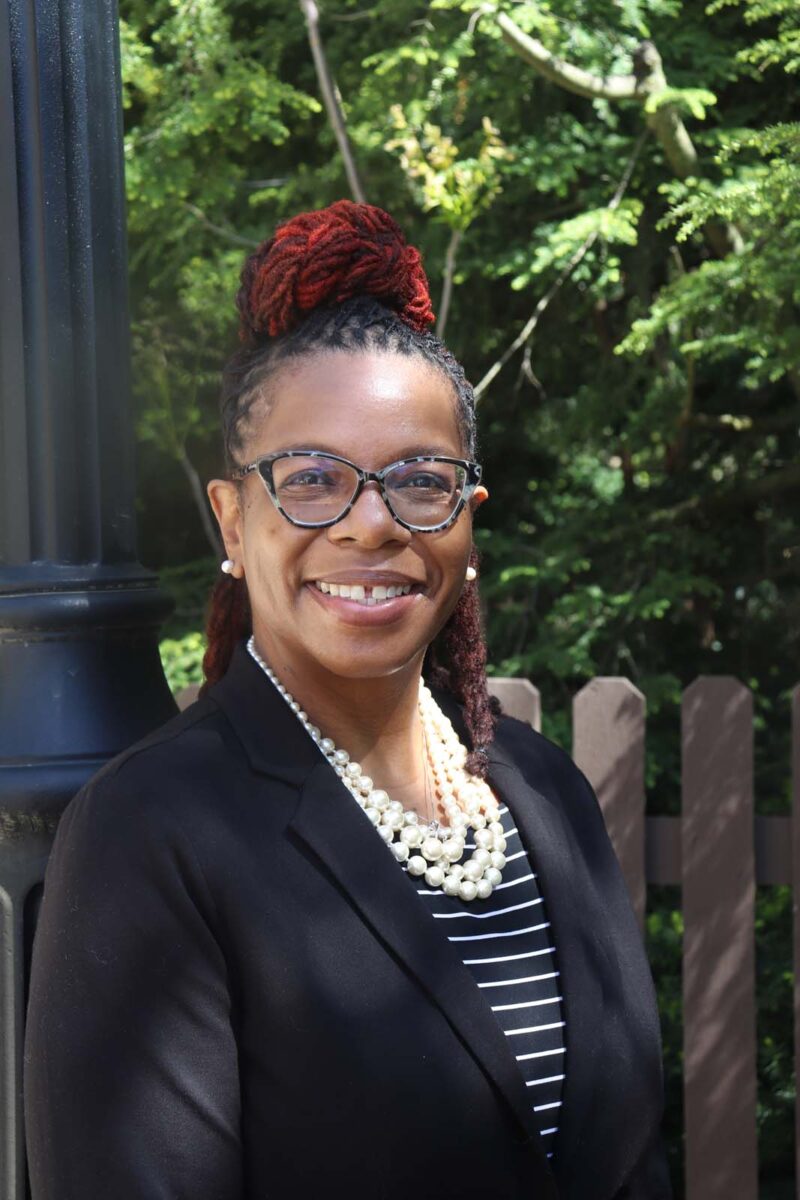
(GSLC, PhD in Leadership
and Change)
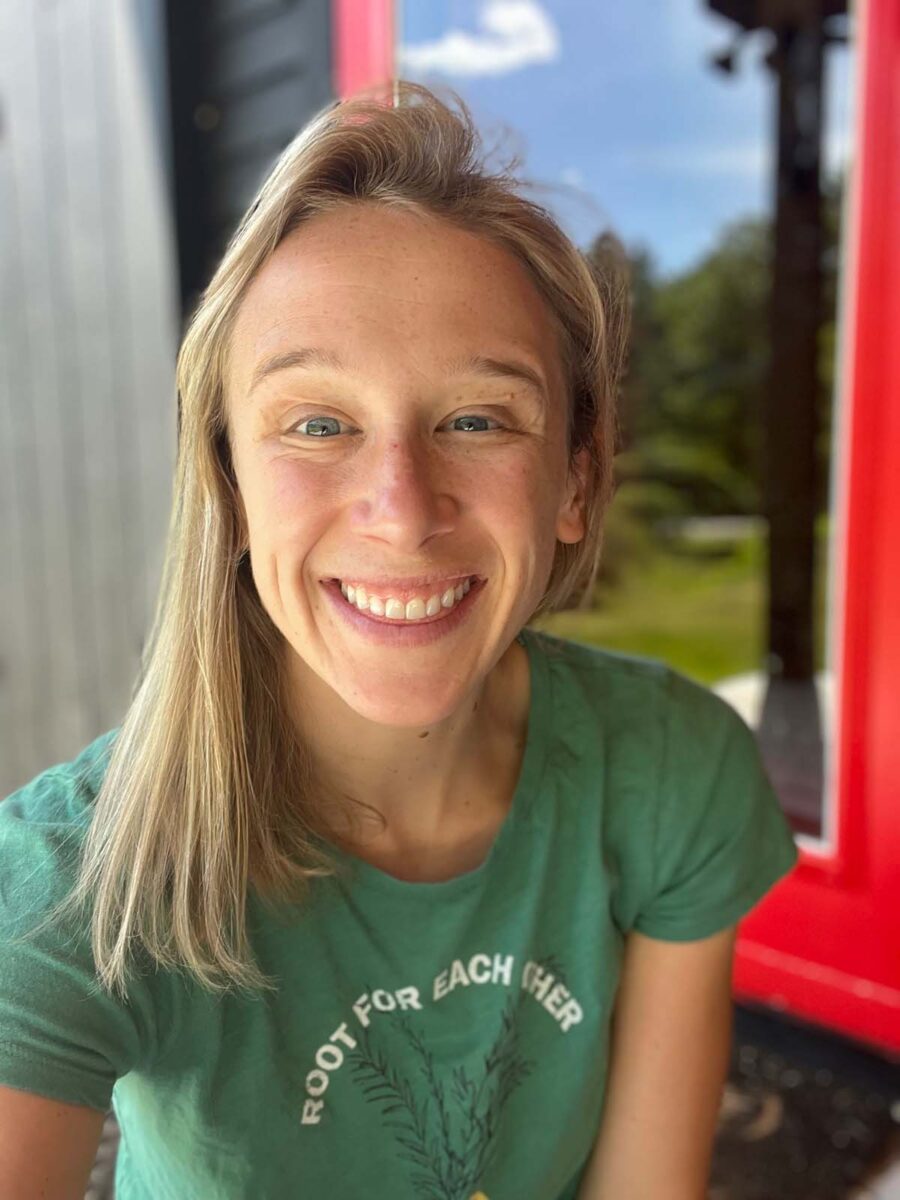
(New England, MEd for
Experienced Educators)
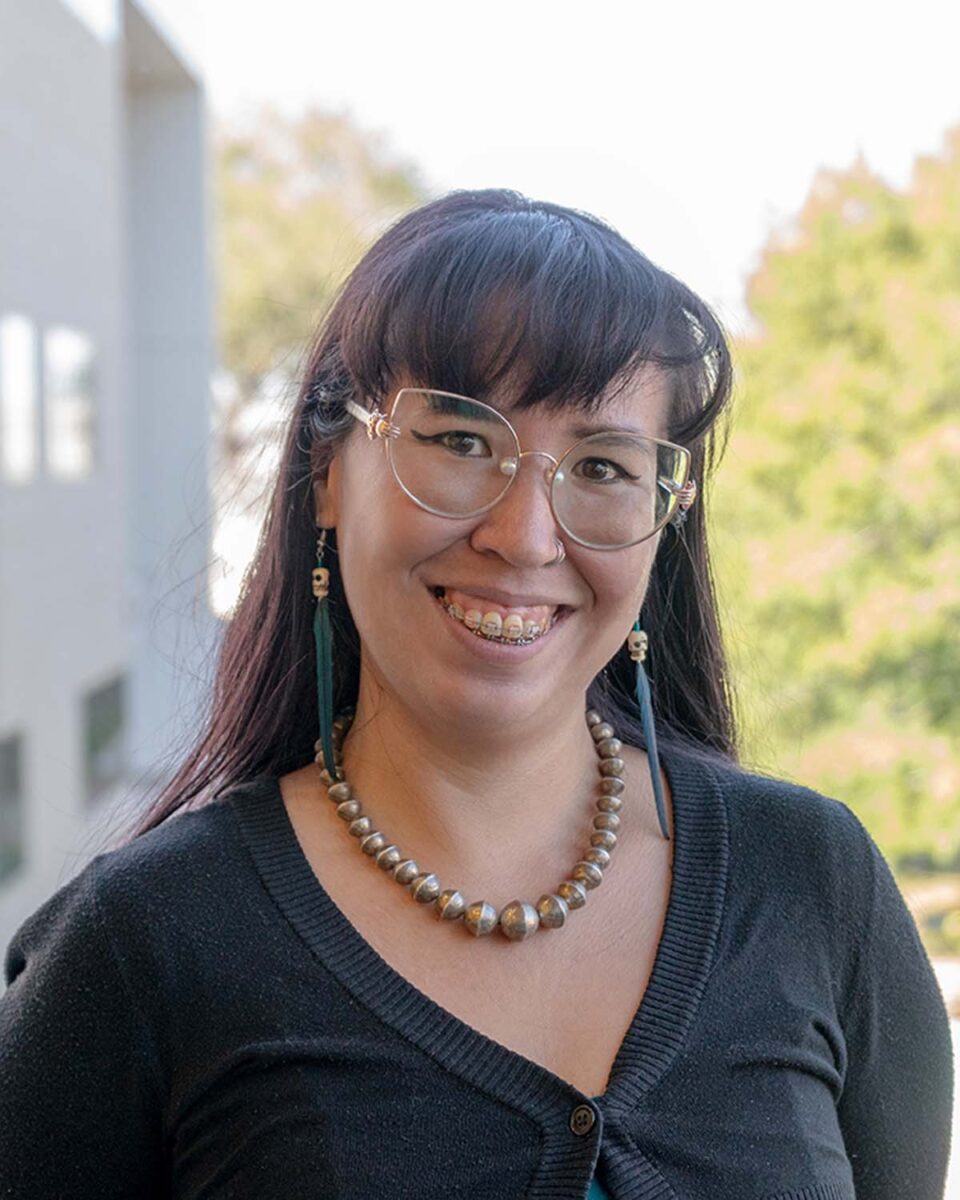
(Online, EdD in Education
and Professional Practice)
Dani: I love that, Ashley. I think there’s something really beautiful about that human connection and the humanizing of the administrator. Because my own experience when I was in college was, you know, anyone at the dean level or above felt like so unattainable. Like, I had nothing in common with them. The fact that you’re able to build those individual relationships and really just be a human in your role is so beautiful.
Ashley: Thank you, Dani.
Ally: The first word that comes to my mind with this question is “unexpected connections.” So, it’s funny that you’re both feeling that as well. Because when I think about being a high school teacher, of course, the goal is to build relationships with our students. But I think the unexpected connections that are really satisfying for me in this small environment is getting to know my students’ parents or guardians or grandparents and other community members in our town because of the way our school is structured. Because we have monthly meetings where parents and grandparents and community teachers get to come together and really talk about education. I find that my experience is much wider and deeper, and I’m learning from people in all sorts of different directions, which is very satisfying.
Dani: One of the most unexpectedly fulfilling parts of my job is that it pushes me to constantly learn. I am constantly coming up against new situations or new things that are within my purview that I don’t know how to do yet. And so it’s a real exciting challenge for me to be able to learn how to do something new every day in my job. And I think a lot of people who are drawn to education are also kind of these lifelong learners. So I think that that probably is something that could resonate with a lot of listeners as well who might be interested in working in education. Just the idea that your education doesn’t really ever stop. You’re always learning something new.
Do you have any advice to others looking at careers in education and wanting to do work that combines a fulfilling career with their own values?
Ally: I don’t know that it’s super profound, but for me: know your why. I check in with this constantly. It’s like, why am I here? What brought me to this place in the first point? And knowing that deeply because there are going to be so many moments that rattle you and challenge you. And at least as a K-through-12 classroom teacher, I have really hard days, right? So if I know deep down why I’m there, that I value each of these individuals as a person, that I value learning alongside them, that I want to help them figure out who they are and what they want to do and how they want to make change in the world, then it’s a lot easier to come back the next day when I’m exhausted.
Ashley: I really like that, Ally. I think also knowing your values, who you are, is super important, because you’re going to encounter a whole bunch of different challenges. You’re going to encounter different communities. And sometimes it’s going to challenge what you thought you knew about the world. So being open is also super important and not being afraid to say, “I don’t know.” So that your curiosity can continue to grow and you can continue to learn. And it teaches ultimately the students that it’s OK to not know and to still be curious.
Dani: I love both of those offerings. The final piece I would like to contribute is find your people. It’s hard to do any of this work on your own. So finding your support system, finding your allies, finding the people who you can connect with through this work is very important. I know for me in the EdD program, my cohort has been my biggest champions, and we all kind of support each other through the work. We can turn to each other on the days when it’s more difficult and be reminded of why we’re there and what we’re doing and the difference that we’re making in the world. I find that that’s also something I see mirrored in my professional work as well:s finding the people with the shared values, with the shared vision, with that shared why of why we’re showing up and doing the work and being able to help and support each other through it. If in your institution, you don’t have anyone who could be your person in that way, look outside, because I think there’s mentors and peers to be had across the world, across the country, outside of your institution. But it’s really important because we can’t ever function truly as an island in and of ourselves.
Johanna Case edited the podcast episode from which this is excerpted.

